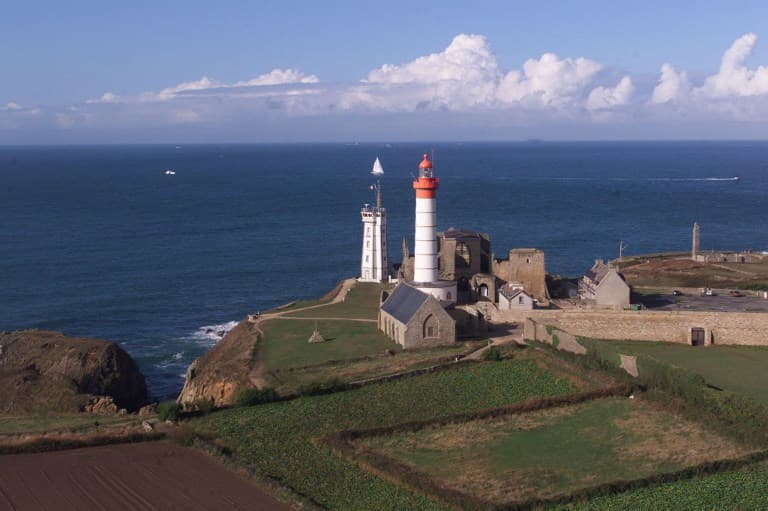France to relaunch search for storied 16th-century shipwrecks

French researchers will this summer resume the search for the Cordeliere, a huge warship that was sunk during an intense 16th-century battle with the biggest vessel in the English fleet -- which also foundered in the clash. The Cordeliere, pride of Anne of Brittany's navy, exploded off the coast of Brest in 1512 after Henry VIII's armada surprised her France-Brittany fleet
during the War of the League of Cambrai.
"What we have under the water here are two of the most significant museums of the 16th century's maritime history," Michel L'Hour, head of France's
marine archeology department, said at a press conference.
"It's an underwater Pompeii."
The search, set to run from June 20 to July 14, will cover about 25 square kilometres (10 square miles) stretching from the port at Brest to the
promontory at Saint-Mathieu, which would later give its name to the battle.
Discovering the arrival of the much larger English armada on August 10, 1512, the bulk of Queen Anne's fleet raced to safety in port.
But the Cordeliere, a 40-metre-long vessel armed with 200 canons, turned to take on the Regent, fending it off for several hours before an explosion of
unknown origin engulfed the French vessel, sinking both ships.
Nearly 1,500 people died, and the sacrifice by the Cordeliere's captain and crew acquired mythic status in Brittany's cultural history.
"As is often the case with ships, the Cordeliere was thrust into History just as it disappeared," L'Hour said.
A series of searches were carried out from 1996 to 2001 without success, but the new effort is based on a new analysis of archival documents as well as a revised interpretation of possible tidal movements.
The Andre Malraux research vessel will use sonar and magnetometric sensors to map the seafloor, with potential anomalies investigated by divers or robotic devices.
"We might find something on the first day, or nothing for five years. But I am firmly convinced, one day we will find it," L'Hour said.
Comments
See Also
The Cordeliere, pride of Anne of Brittany's navy, exploded off the coast of Brest in 1512 after Henry VIII's armada surprised her France-Brittany fleet
during the War of the League of Cambrai.
"What we have under the water here are two of the most significant museums of the 16th century's maritime history," Michel L'Hour, head of France's
marine archeology department, said at a press conference.
"It's an underwater Pompeii."
The search, set to run from June 20 to July 14, will cover about 25 square kilometres (10 square miles) stretching from the port at Brest to the
promontory at Saint-Mathieu, which would later give its name to the battle.
Discovering the arrival of the much larger English armada on August 10, 1512, the bulk of Queen Anne's fleet raced to safety in port.
But the Cordeliere, a 40-metre-long vessel armed with 200 canons, turned to take on the Regent, fending it off for several hours before an explosion of
unknown origin engulfed the French vessel, sinking both ships.
Nearly 1,500 people died, and the sacrifice by the Cordeliere's captain and crew acquired mythic status in Brittany's cultural history.
"As is often the case with ships, the Cordeliere was thrust into History just as it disappeared," L'Hour said.
A series of searches were carried out from 1996 to 2001 without success, but the new effort is based on a new analysis of archival documents as well as a revised interpretation of possible tidal movements.
The Andre Malraux research vessel will use sonar and magnetometric sensors to map the seafloor, with potential anomalies investigated by divers or robotic devices.
"We might find something on the first day, or nothing for five years. But I am firmly convinced, one day we will find it," L'Hour said.
Join the conversation in our comments section below. Share your own views and experience and if you have a question or suggestion for our journalists then email us at [email protected].
Please keep comments civil, constructive and on topic – and make sure to read our terms of use before getting involved.
Please log in here to leave a comment.